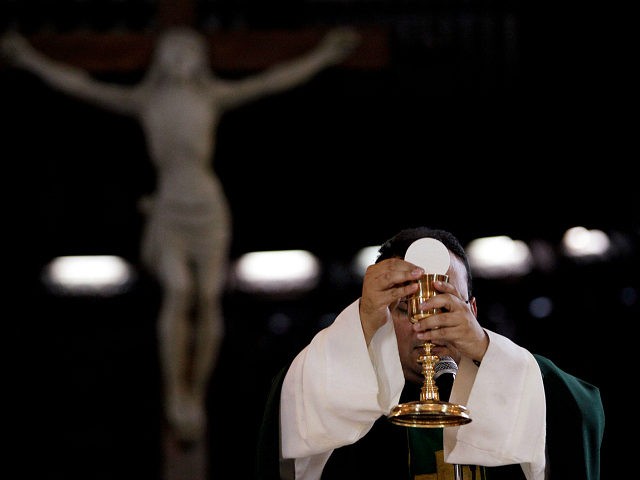The vast majority of cases of clerical sex abuse is homosexual in nature rather than pedophilia according to an analysis published Saturday in the National Catholic Register.
In recent weeks, the Catholic Church has been shaken by revelations of extensive sexual abuse in six dioceses of Pennsylvania, in the major seminary of Tegucigalpa (Honduras), in Chile, and on the part of a prominent American cardinal.
While much of the abuse dates back to several decades ago, it has provoked anger, frustration, disgust, and cries for justice and accountability by those responsible and those who knew something and failed to act.
According to Saturday’s widely cited and circulated analysis by Msgr. Charles Pope, the Church must urgently address the problem that lies at the root of the scandals: a widespread homosexual culture among clergy and bishops.
The problem of active homosexuality in the priesthood is “the most-avoided topic related to this scandal,” Pope writes, and yet an honest discussion of the current crisis “cannot avoid addressing the issue — shouts of homophobia, intolerance, bigotry and scapegoating notwithstanding.”
“It is evident that the vast majority of the cases involving both the sexual abuse of minors and of adults involve male victims,” Pope writes, citing the comprehensive 2004 John Jay Report, which found that 81 percent of the victims of clerical sex abuse were male and 78 percent of all victims were post-pubescent.
“So, the large majority of cases involved attraction by homosexuals to young men who, though legally minors, were physically and sexually mature males, not little children,” he writes.
“This is not pedophilia. It is homosexual attraction,” he writes, adding that the statistical evidence of the recent scandals also shows “a highly disproportionate level of homosexual involvement.”
According to Msgr. Pope, the logical conclusion from the studies is that seminaries and the priesthood are not good places for those with deep-seated same-sex attraction.
“Putting a man with same-sex attraction in a seminary is no more advisable than putting a heterosexual man in a woman’s dormitory where he shares shower facilities and close quarters with women,” he notes. “A man with same-sex attraction is going to face temptations in all-male settings that would test the strongest.”
“Add to this the possibility that other men of same-sex attraction are there and soon enough a subculture sets up where temptations are fierce, and compromises and liaisons soon emerge,” he writes. “And this is what we have seen in the ‘gay’ subculture that is demonstrably existent among a significant number of clergy in the Church.”
Msgr. Pope has suggested that an honest discussion of the recent crisis must address and analyze these facts clearly and straightforwardly.
“Ignoring them and staying silent through political correctness is malpractice at this point,” he notes. “We must speak charitably and clearly about this. We must not allow charges of intolerance, homophobia and scapegoating to suppress a frank discussion and analysis of the link of much of this misbehavior to active homosexuals, and a subculture among some of them that tolerates and promotes behavior which God forbids.”
Pope Francis himself recently restated the Church’s policy of not admitting to the seminary or to holy orders those who practice homosexuality, present deep-seated homosexual tendencies or support the so-called “gay culture,” the article points out.
In an underreported story, which does not fit the narrative the media want to create regarding Pope Francis, the pope indicated that homosexual acts or deep-seated tendencies “can lead to scandals and can compromise the life of the seminary, as well as the man himself and his future priesthood,” the article states.
Nevertheless, “any conversation that seeks to find real traction or solutions is going to have to include the connection to homosexuality — not as a single cause, but as an essential and highly important one,” Msgr. Pope notes.
It is time for “a truthful conversation free from political correctness and forbidden topics,” he observes.
“If our bishops are not willing to engage a full and honest airing of all the causes, the anger of God’s people will only increase, and the credibility of the bishops and the Church will sink from near zero to absolute zero,” he concludes.
Follow Thomas D. Williams on Twitter Follow @tdwilliamsrome

COMMENTS
Please let us know if you're having issues with commenting.